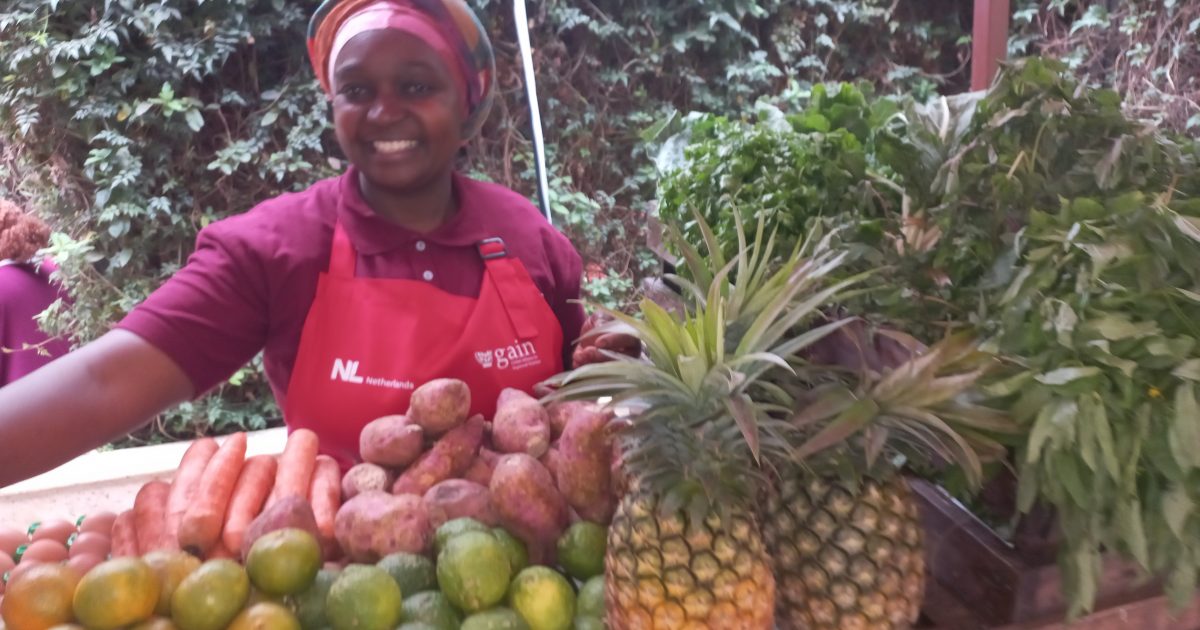Kenyan food systems are facing unprecedented challenges that include low productivity and inefficient food markets.
In addition, the food system actors such as the agricultural production system, those involved in food storage, transport and trade systems, food transformation and food retail, are not adequately focusing on delivering nutritious food to consumers.
The remarks were made by Principal Secretary, State Department for Agriculture Dr. Kipronoh Ronoh who added that there is a need to change the availability and affordability of nutritious foods.
Speaking when opening a three day KONGAMANO: Resilient Markets and Food Systems Governance Conference convened by the Global Alliance for Improved Nutrition (GAIN), the PS noted that traditional fresh food markets are a critical hub for fresh foods and remained a primary source of both staples and nutrient-dense food for a large share of our population.
“Fresh food are essential to food and nutrition security (FNS) of urban and rural residents. Presently, many of these markets are set up in a way that makes them structurally and operationally vulnerable to disruptions, such as, weather hazards, fires and power failures,” he said.
Dr. Ronoh reiterated that the Food and Nutrition Security Policy (FNSP) outlines the range of priority areas and principles for government interventions to ensure all citizens get their right to be free from hunger and all forms of malnutrition as enshrined in the Kenya Constitution, 2010.
“We are working closely with GAIN to transform food systems while paying specific attention to the wellbeing of vulnerable members of society by supporting their ability to adapt and thrive, access to resources and their rights to sustainable and equitable food systems,” the PS said.
He added, “We must not overlook the imperative of gender responsiveness and inclusivity within our endeavors. Traditional food markets are strongholds of livelihoods for many women and therefore we are obligated to ensure equitable access to resources and opportunities, thus empowering women to assume meaningful roles in market governance”.
GAIN’S Kenya Country Director Ruth Okowa said that urbanisation is negatively influencing Sub-Saharan Africa household diets, evidenced by an increase in consumption of affordable, well marketed highly processed foods across the urban-rural continuum.
“It is worth noting that more than 70 percent of Sub-Saharan Africa households, especially those most vulnerable to social, economic and environmental shocks and pervasive food insecurity and malnutrition, access food from traditional fresh food markets,” she added.
She explained that in Kenya, traditional food markets remained a dominant source of both staples and nutrient-dense foods which indeed underpins GAIN’s work in this space.
“As GAIN, we believe that markets are not merely physical spaces where goods are exchanged; they are the mainstay of our urban environments, serving as hubs for economic activity, cultural exchange, and social cohesion. They are where farmers, vendors, and consumers converge, fostering connections that are essential for the resilience of our food systems,” Okowa said.
The Country Director explained that the Keeping Food Markets Working (KFMW) programme in Kenya was implemented in Kiambu and Machakos Counties aiming at keeping fresh food markets open and well governed and related SME businesses operational during and after the COVID-19 pandemic.
The programme, she added, also provided emergency grants worth over USD 453,000 to about 40 SMEs by covering operating expenses such as rent, salaries, marketing, transport, and raw materials.
“In collaboration with the National Government and the County Governments of Kiambu and Machakos, we also developed and disseminated over 2,200 Information, Education and Communication (IEC) materials to keep COVID-19 out of markets through observing hygiene and social distancing, and dos before going to the market, while at the market and after visiting the market.
Building on the experience and lessons during the implementation of the KFMW, Okowa said that the Resilient Markets Programme was conceived and is currently being implemented in one market in each of the five implementation counties.
“The markets are in Madaraka in Kiambu, Marikiti in Machakos County, Free Area in Nakuru, Soweto in Nairobi and Kongowea in Mombasa County.
The project goal is to enhance resilience of traditional fresh food markets through effective inclusion, empowerment and mobilization of key food systems actors.
It is projected that six out of every 10 people in the world were expected to reside in urban areas by 2030. Further, it is also projected that over 90 percent of this growth would take place in Africa and Asia continents with unprecedented transitions in our dietary patterns and shifts in our food systems ecosystem.
By Wangari Ndirangu




